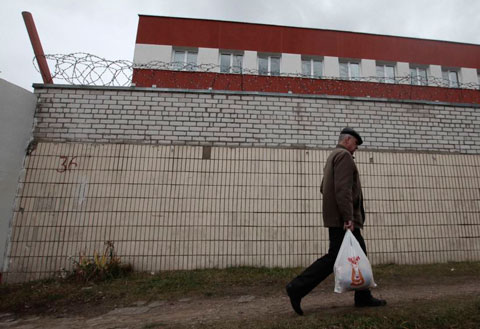What do administrative detainees pay for?
There is no clear and transparent information regarding the nutrition norms for persons serving an administrative arrest remains unclear.
“It is impossible to indicate the net weight of each foodstuff that must be issued according to the present norms”, this is the answer received by the human rigths activist Siarhei Ustsinau from the Office for the supervisory and executive activities of the Ministry of Internal Affairs.
Let us remind that the human rights activist has filed an appeal to the Council of Ministers, in which he asked to explain how to was the gross mass determined for the foodstuffs, as well as to bring to light the net weight of the foodstuffs according to the nutrition norms of temporary detention facilities.
"Filing this appeal, I wanted to get complete and transparent information on the calculation of the nutritional standards. What kind of transparency can one speak of while the norm of waste and losses in the processing of foodstuffs while preparing the food is deemed as official information of limited distribution?" comments Mr. Ustsinau at the website “Human Rights Defenders against Torture”.
The lack of available information, which would clearly indicate how much and what foodstuffs an administrative arrestee must receive, leads to such violations as low-quality nutrition or the issue of foodstuffs in smaller quantities than is required by law.
"The most paradoxical thing is that administrative arrestees must reimburse the expenses for being fed at the detention center. Therefore, they have the right to know what they pay for. It's worth noting that the sum is quite significant for Belarusian citizens – 90,000 rubles a day (about $7). Moreover, the absence of information about the norms of issue of foodstuffs doesn't let to appeal against possible violations,” believes the human rights activist.


















